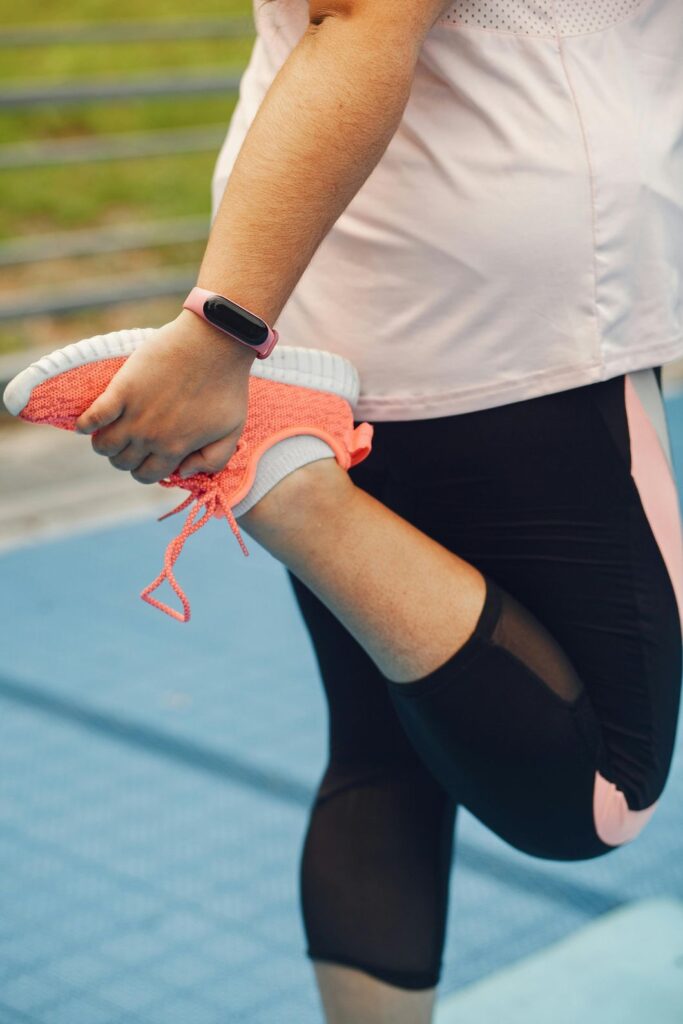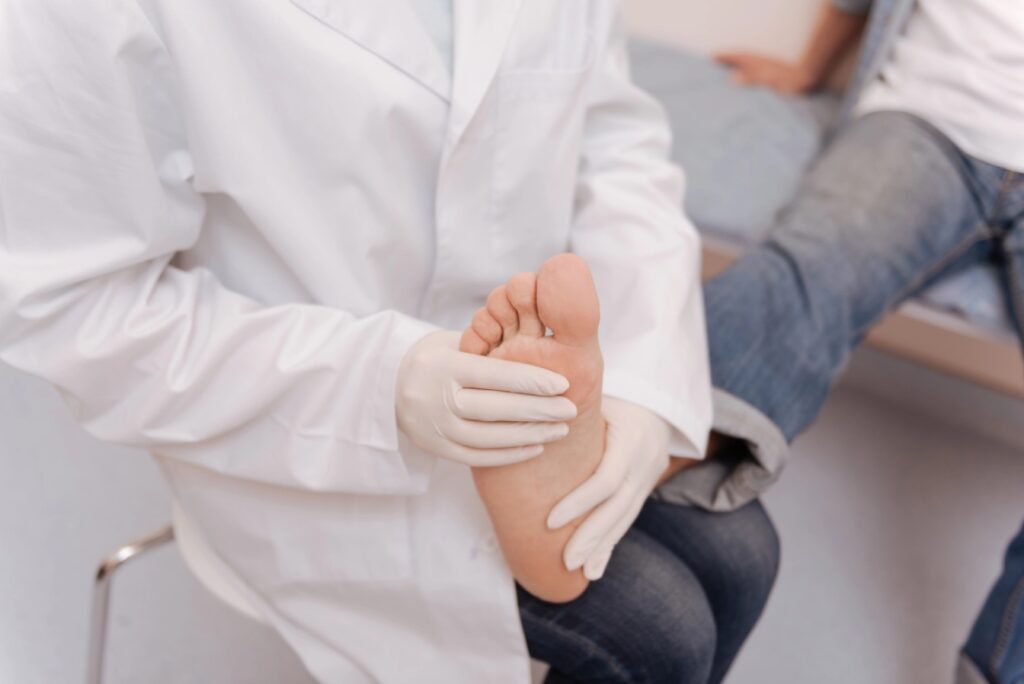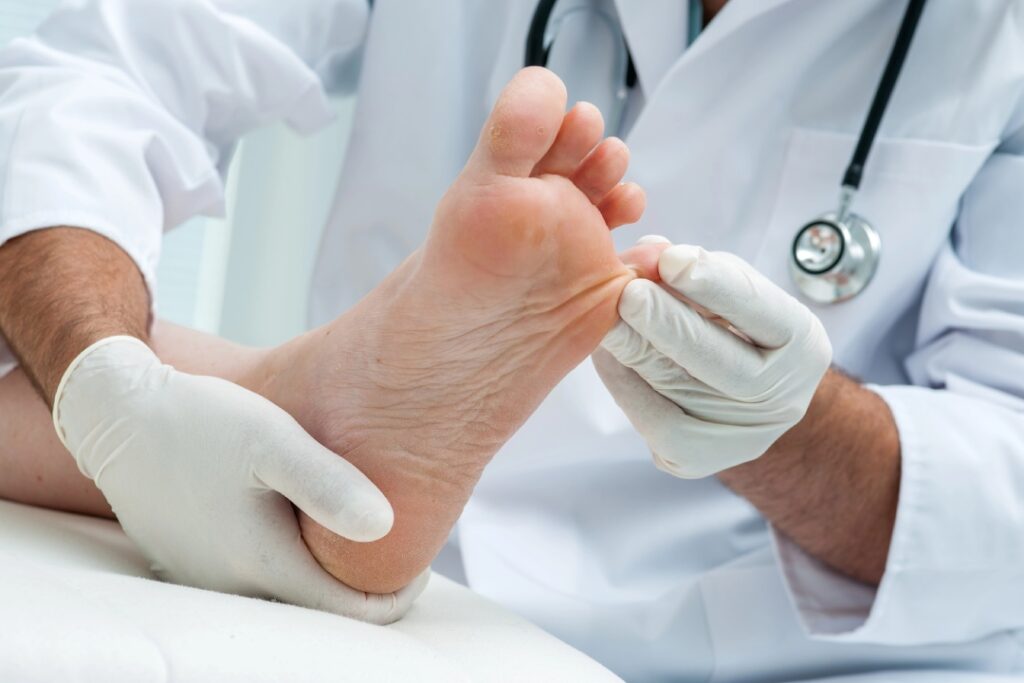Running can be one of the most rewarding forms of exercise, but let’s be honest—it often comes with its fair share of aches and pains. If your feet are constantly sore after a run, you’re not alone. Many runners, from beginners to seasoned athletes, struggle with foot pain that can dampen their training goals and even sideline them completely. The good news? There are plenty of ways to relieve foot pain and prevent it from taking control of your running routine.
In this guide, we’ll break down the causes of running-related foot pain, what symptoms to watch for, and most importantly—how to find lasting relief. If you’re in Turtle Hill Village, you’ll also discover how Vital Podiatry Foot and Ankle Specialist can help you get back on track with expert care.
Understanding Foot Pain After Running
Why Runners Often Experience Foot Pain
Your feet take a pounding every time they hit the ground. With each step, they absorb forces up to three times your body weight. It’s no wonder runners often end up with sore feet. Foot pain is the body’s way of signaling that something isn’t quite right, whether it’s your running form, footwear, or even hidden health issues.
Common Causes of Running-Related Foot Pain
Overuse and Repetitive Stress
Running is repetitive by nature. Over time, the constant pounding can irritate muscles, tendons, and ligaments in the feet, leading to overuse injuries like plantar fasciitis or stress fractures.
Improper Footwear
Wearing worn-out shoes or those not designed for your foot shape can throw off your alignment and cause pain. Shoes that lack cushioning or support can make every stride feel like you’re running on concrete.
Flat Feet or High Arches
Both extremes—flat feet and very high arches—can lead to pain. Flat feet cause overpronation (rolling inward), while high arches can reduce shock absorption, leaving your feet more vulnerable.
Existing Medical Conditions
Conditions like arthritis, bunions, or nerve problems can worsen with running. Ignoring these underlying issues often makes the pain worse over time.
Symptoms You Shouldn’t Ignore
Mild Discomfort vs. Chronic Pain
It’s normal to feel a little soreness after a long run, but that should fade within a day or two. If the pain lingers, worsens, or interferes with daily activities, it’s no longer “just soreness.”
When Foot Pain Becomes a Red Flag
Seek medical help if you notice:
- Sharp or stabbing pain in the heel or arch
- Swelling that doesn’t go down
- Pain that worsens when standing or walking
- Numbness or tingling sensations
These are often signs that you need professional care.

Immediate Relief Strategies
Rest and Elevation
Your feet need downtime just as much as your muscles. Elevating them after a run helps reduce swelling and promotes faster recovery.
Ice Therapy for Swelling
Applying an ice pack for 15–20 minutes can work wonders for inflammation. Think of it as a quick “reset button” for your feet.
Gentle Stretching
Simple stretches for the calves, Achilles tendon, and arches can relieve tightness. For example, rolling a tennis ball under your foot is a great at-home technique.
Over-the-Counter Pain Relief
Non-prescription pain relievers or anti-inflammatory gels can provide temporary relief, but they’re not a long-term fix.
Long-Term Solutions to Prevent Foot Pain
Choosing the Right Running Shoes
Your shoes are your first line of defense. Look for a pair that matches your foot type and running style. Replace them every 300–500 miles to avoid wear-related issues.
Using Custom Orthotics
If off-the-shelf shoes aren’t cutting it, custom orthotics can provide targeted support. These inserts are designed specifically for your feet, improving alignment and reducing pain.
Strengthening and Conditioning Exercises
Foot and Ankle Strength Exercises
Toe raises, towel scrunches, and resistance band workouts can strengthen weak muscles that often contribute to foot pain.
Flexibility and Stretch Routines
Stretching your calves, Achilles tendon, and plantar fascia helps keep your feet limber and less prone to injury.
Home Remedies That Actually Work
Epsom Salt Soaks
A warm soak with Epsom salts relaxes muscles, reduces swelling, and feels like a mini spa treatment for your feet.
Massage Techniques
Using your hands, a massage ball, or even a frozen water bottle can ease tension and boost circulation in sore areas.

Professional Help for Persistent Pain
Why You Should See a Specialist
If foot pain keeps coming back, it’s time to stop guessing. Self-treatment only goes so far—specialists can pinpoint the exact cause and design a treatment plan tailored to you.
How Vital Podiatry Foot and Ankle Specialist Can Help in Turtle Hill Village
Personalized Diagnosis
Every runner is different. At Vital Podiatry Foot and Ankle Specialist, patients in Turtle Hill Village receive thorough evaluations to identify the true source of their pain.
Advanced Treatment Options
From custom orthotics to advanced therapies, the clinic offers cutting-edge solutions designed to relieve pain and restore mobility so you can enjoy running again.
Lifestyle Tips for Pain-Free Running
Proper Warm-Up and Cool-Down
Never skip warm-ups or cool-downs. Gentle stretching before and after a run prepares your muscles and reduces strain.
Building Mileage Gradually
Avoid the “too much, too soon” trap. Increase your mileage by no more than 10% per week to prevent overuse injuries.
Nutrition and Hydration’s Role in Recovery
What you put in your body matters. Staying hydrated and eating a balanced diet supports tissue repair and helps your body bounce back quicker.
Vital Podiatry Foot and Ankle Specialist Serving the Turtle Hill Village Community and Beyond in Houston
Vital Podiatry Foot and Ankle Specialist is dedicated to serving the diverse needs of the local community of Houston, including individuals residing in neighborhoods like Turtle Hill Village. With its convenient location near landmarks such as Turtle Lake and major intersections like Cougar Rd. and Falcon Rd. (coordinates: 29.9365690099684, -95.56708388921547), we offer urgent care for heel pain Houston services.
Get Urgent Care For Heel Pain Services At Turtle Hill Village Now
CALL US NOW!
(281) 937-4546
Navigate from Turtle Hill Village to Vital Podiatry Foot and Ankle Specialist Now
Final Thoughts
Foot pain from running doesn’t have to hold you back. With the right mix of rest, at-home remedies, proper footwear, and professional guidance, you can keep running without the nagging discomfort. And if you’re in Turtle Hill Village, Vital Podiatry Foot and Ankle Specialist is here to provide expert care tailored to your unique needs. Remember, listening to your body is the best way to stay on track with your running goals.
FAQs
1. Is it normal to have sore feet after every run?
Mild soreness is common, but consistent or sharp pain may indicate an underlying issue that needs attention.
2. How long should I rest if my feet hurt after running?
It depends on the severity. For mild discomfort, a day or two is enough. For persistent pain, consult a podiatrist.
3. Can running shoes really prevent foot pain?
Yes—choosing the right shoes for your foot type and replacing them regularly can significantly reduce pain.
4. Are home remedies like Epsom salt soaks effective?
They help relieve mild pain and swelling, but they’re not a substitute for professional care if the pain is ongoing.
5. When should I see a podiatrist for foot pain?
If the pain lasts more than a week, gets worse with activity, or affects your daily routine, it’s time to see a specialist.










